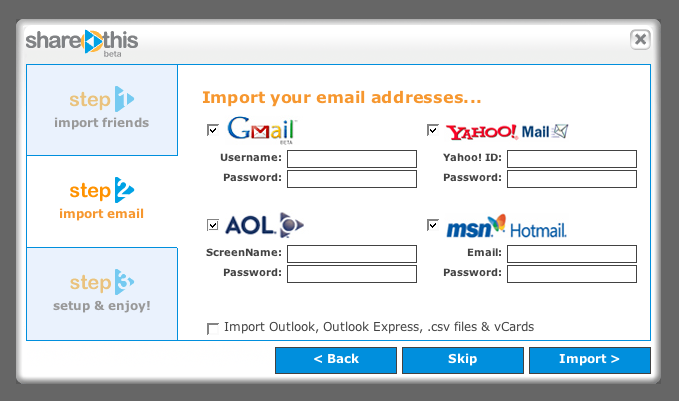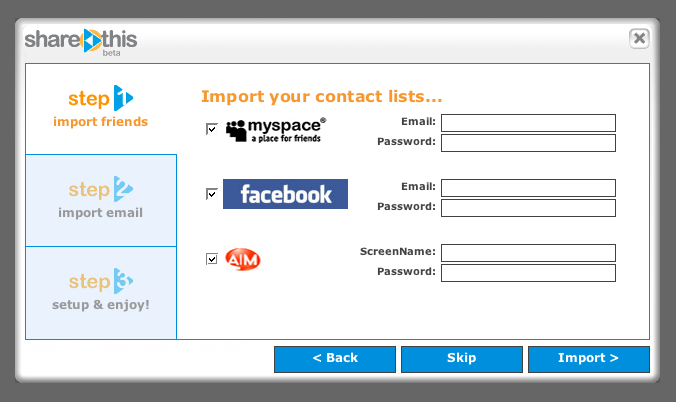social-network-anti-patterns
Social Network Anti-patterns
While social-network-portability documents what to do to put your site on the open social web and be a good user-centric service in general, it's been noted that not everyone follows such advice and instead opts for a bunch of alternative either one-off (wasteful) or downright user-unfriendly tactics. This page documents such anti-patterns of social network design and implementation and provides (unfortunately) real world examples of such badly designed sites.
Upload your Address Book
Many social networking sites ask you to upload your address book. This is a bad idea.
Since so many sites seem to use your uploading of your address book as tacit/implied permission to spam all your friends with invites, this will annoy your friends, and make you look foolish.
Quechup
workarounds
This spamming behavior is now so bad, that users are creating new email accounts to knowingly avoid the problem:
- Lisa McMillan on Twitter
"getting a special email account with no contacts for signing up to social networks. Then, I won't mind when they hijack my address book."
Solution: support social-network-portability instead, not address book spamming.
Enter your email login and password
Giving any site your login credentials/permissions for another site or service is a very bad idea.
You cannot trust that the site will treat your login credentials with proper care (e.g. the pictured example, Quechup, emails everyone in the address book of the email service you provide login credentials for).
It is also very bad user interface design. These sites that ask for your login (whether gmail or other services) are teaching users a very bad habit, a habit that is akin to what phishing sites depend on.
Don't ask users for their login and password to another site like gMail etc.
Solution: support social-network-portability.
Blog posts:
- The password anti-pattern—Jeremy Keith.
- There may be a blog post on this by Chris Messina, but where is it? Perhaps someone can find it.
One Unified Social Network
Several companies are trying to build the "one unified social network" (to rule them all) where they own/control the social network, and you're "allowed to" build applications on top of their proprietary platform. The most recent example of this is perhaps Facebook.
This is a bad idea for the same reason you don't see "one universal blogging service".
Other examples of folks walking down this path:
- Socialstream - a Google sponsored project at CMU. Key quote: "a unified social network that, as a service, provides social data to many other applications". See also references in this Forbes article: Google's Secret Society.
- ...
The hope is that these services will see the potential upside of providing open user profiles and social networks through social network portability and thus enable syndication of such data, as popular blogging services do.

